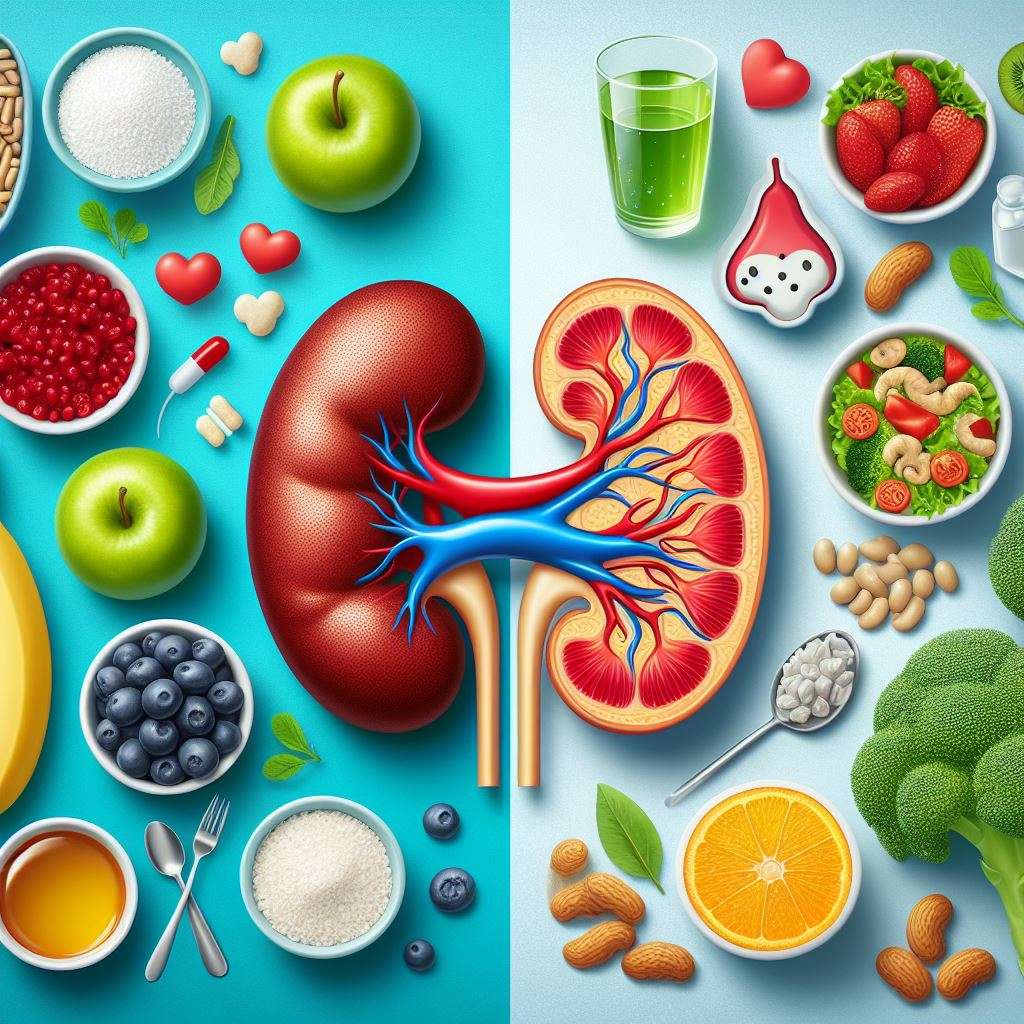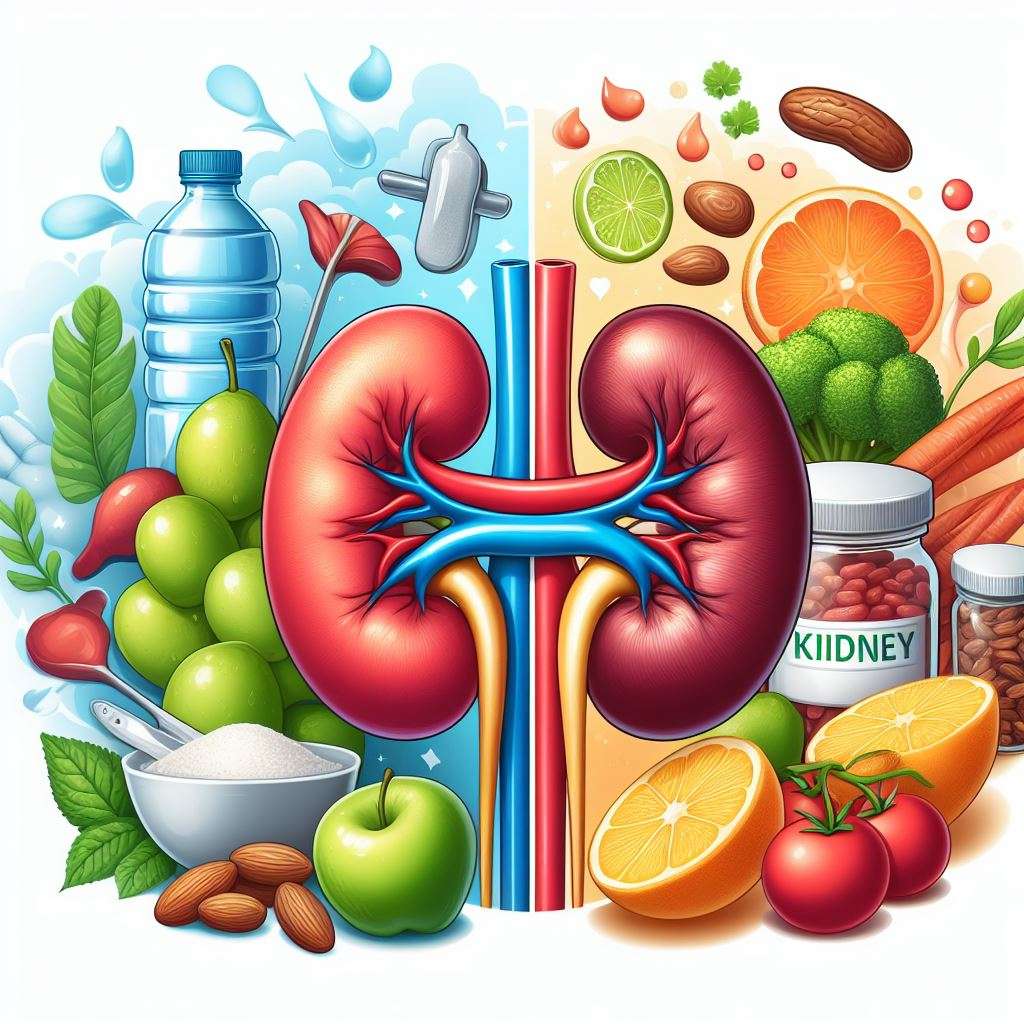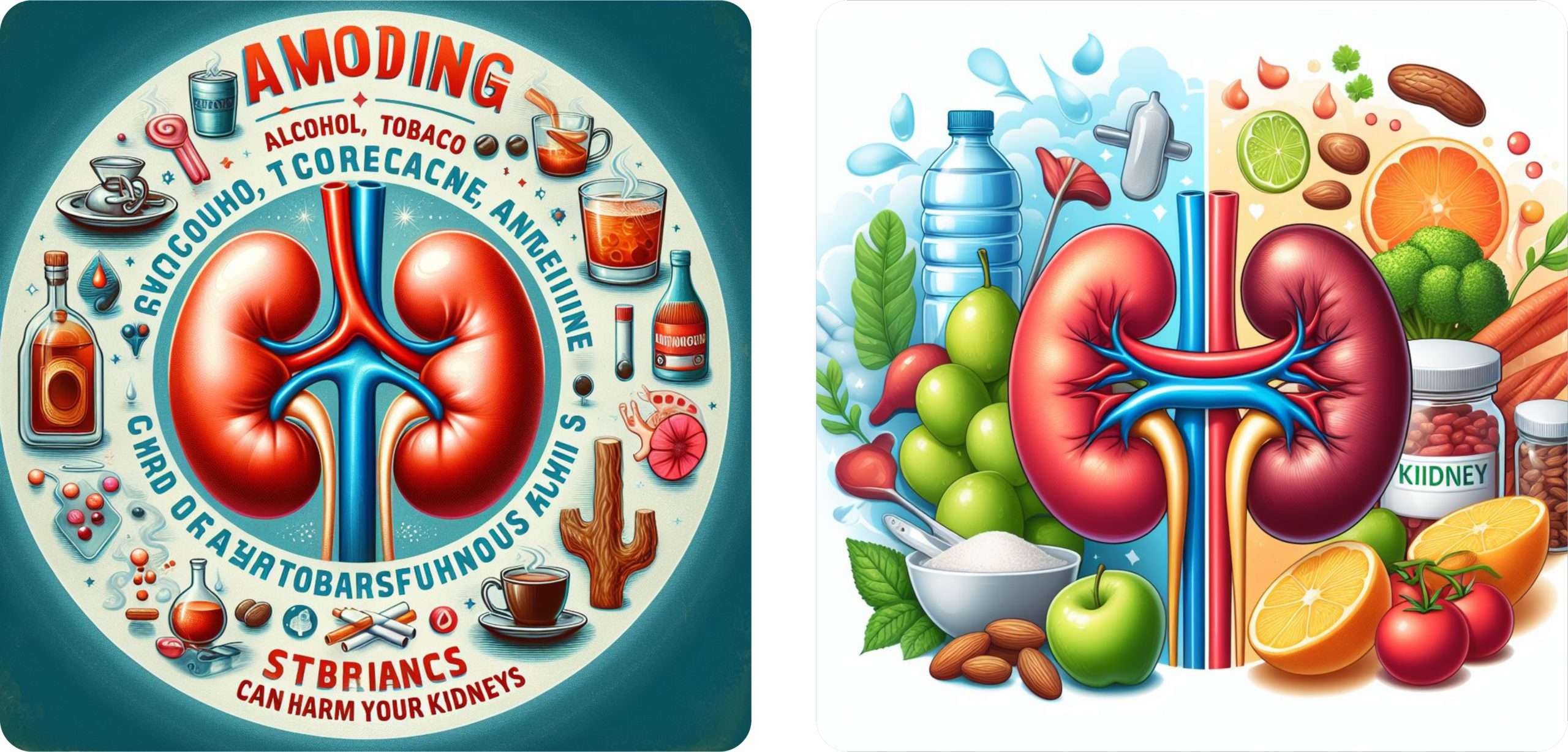Introduction
Your kidneys are vital organs that filter waste and excess fluid from your blood, regulate your blood pressure, and balance your electrolytes. Keeping your kidneys healthy is essential for your overall well-being. One of the most important factors that affect your kidney health is your diet.
However, many people struggle with adopting a kidney-friendly diet because they feel restricted, fearful, or confused about what they can or cannot eat. If you are one of them, this article is for you. In this article, you will learn how to transition from a restrictive mindset to embracing a kidney-friendly diet confidently. You will also discover the benefits of a kidney-friendly diet, the foods that support or harm your kidneys, and the practical tips for making dietary changes easier and enjoyable.
By the end of this article, you will have a clear understanding of how to empower a positive relationship with food and health, and look forward to a future of improved kidney health and overall well-being.
Understanding Kidney-Friendly Diet

Before you start making any dietary changes, it is important to understand what a kidney-friendly diet is and why it is beneficial for your kidneys. A kidney-friendly diet is a way of eating that supports your kidney function and prevents further damage. It also helps you manage other health conditions that may affect your kidneys, such as diabetes, high blood pressure, or heart disease.
A kidney-friendly diet typically involves:
- Limiting the intake of sodium, potassium, phosphorus, and protein, which can build up in your blood and cause problems for your kidneys.
- Eating more fruits, vegetables, whole grains, lean meats, fish, eggs, low-fat dairy, and healthy fats, which provide nutrients and antioxidants that protect your kidneys.
- Drinking enough water and fluids, which help your kidneys flush out waste and toxins from your body.
- Avoiding alcohol, tobacco, caffeine, and other substances that can harm your kidneys.
By following a kidney-friendly diet, you can:
- Reduce the symptoms and complications of kidney disease, such as swelling, fatigue, nausea, itching, bone loss, and anemia.
- Slow down the progression of kidney disease and delay the need for dialysis or transplantation.
- Improve your blood pressure, blood sugar, cholesterol, and heart health.
- Enhance your energy, mood, and quality of life.
Overcoming Fear and Misconceptions
One of the biggest challenges that people face when transitioning to a kidney-friendly diet is overcoming their fear and misconceptions. Many people have negative associations with a kidney-friendly diet, such as:
- It is too restrictive and boring, and there is nothing left to eat or enjoy.
- It is too complicated and confusing, and there are too many rules and guidelines to follow.
- It is too expensive and inconvenient, and it requires a lot of time and effort to prepare and shop for food.
- It is too isolating and depressing, and it affects their social and emotional well-being.
These misconceptions can create a lot of stress and anxiety, and prevent people from making positive dietary changes. However, the truth is that a kidney-friendly diet does not have to be any of these things. In fact, a kidney-friendly diet can be:
- Flexible and adaptable, and there are many options and alternatives to choose from.
- Simple and clear, and there are easy ways to understand and follow the dietary recommendations.
- Affordable and accessible, and there are many resources and tips to save money and time on food.
- Social and enjoyable, and there are ways to cope with and overcome the psychological impact of dietary restrictions.
The key to overcoming fear and misconceptions is to reframe your perceptions and build confidence in your dietary choices. You can do this by:
- Educating yourself and learning more about the benefits and rationale of a kidney-friendly diet.
- Seeking inspiration and motivation from other people who have successfully adopted a kidney-friendly diet.
- Experimenting and trying new foods, recipes, and cuisines that are kidney-friendly and delicious.
- Celebrating and rewarding yourself for making progress and achieving your dietary goals.
Practical Tips for a Kidney-Friendly Lifestyle
Another challenge that people face when transitioning to a kidney-friendly diet is implementing and sustaining the dietary changes in their daily lives. Many people find it hard to stick to a kidney-friendly diet because they lack the skills, knowledge, or support to do so. However, there are many practical tips and strategies that can help you make a kidney-friendly lifestyle easier and more enjoyable. Some of these tips are:

- Meal planning and preparation: Plan your meals ahead of time and prepare them in advance. This will help you avoid impulse eating, save money and time, and ensure that you have kidney-friendly food available at all times. You can also use tools and apps to help you plan and track your meals and nutrients.
- Incorporating variety and flavor: Add variety and flavor to your diet by using herbs, spices, lemon juice, vinegar, and other kidney-friendly condiments. You can also explore different cuisines and cultures that offer kidney-friendly dishes, such as Mediterranean, Asian, or Mexican. You can also modify your favorite recipes and make them more kidney-friendly by using substitutes or reducing the amount of sodium, potassium, phosphorus, or protein.
- Navigating social situations and dining out: Do not let your dietary restrictions stop you from enjoying social occasions and eating out. You can still have fun and be social by following some tips, such as:
- Informing your friends and family about your dietary needs and preferences, and asking for their support and understanding.
- Checking the menu and nutrition information of the restaurant or venue beforehand, and choosing the most kidney-friendly options available.
- Asking for modifications or special requests, such as less salt, sauce on the side, or smaller portions.
- Bringing your own food or snacks, or sharing your food with others, if possible.
The Importance of Monitoring and Professional Guidance
Transitioning to a kidney-friendly diet is not a one-time event, but a continuous process that requires regular monitoring and professional guidance. Your kidney function and dietary needs may change over time, depending on your stage of kidney disease, your medications, and your other health conditions. Therefore, it is important to:
- Monitor your kidney function and other health indicators, such as your blood pressure, blood sugar, cholesterol, and weight. You can do this by getting regular blood tests, urine tests, and physical exams from your doctor.
- Seek guidance from healthcare professionals, such as dietitians or nephrologists, who can help you design and adjust your kidney-friendly diet according to your individual needs and goals. They can also provide you with education, counseling, and support to help you cope with and manage your kidney health.
- Utilize resources and support networks for individuals managing kidney health, such as books, websites, blogs, podcasts, videos, online forums, support groups, or organizations. These resources can provide you with valuable information, tips, advice, inspiration, and encouragement to help you transition to a confident kidney-friendly diet.
Empowering a Positive Relationship with Food and Health
Transitioning to a kidney-friendly diet is not only a physical change, but also a mental and emotional one. It can affect your relationship with food and health, and how you view yourself and your life. Therefore, it is essential to empower a positive relationship with food and health, and cultivate a mindset that supports your well-being. You can do this by:
- Promoting self-compassion and resilience in dietary management: Be kind and gentle with yourself, and do not judge or criticize yourself for making mistakes or having setbacks. Instead, acknowledge and accept your feelings, learn from your experiences, and focus on your strengths and achievements. Remember that you are doing your best, and that you are not alone in this journey.
- Encouraging holistic approaches to health beyond diet: Do not neglect other aspects of your health, such as your physical, mental, emotional, and spiritual well-being. Incorporate healthy habits and activities that enhance your health and happiness, such as exercise, meditation, relaxation, hobbies, or volunteering. These habits and activities can also help you cope with stress, improve your mood, and boost your self-esteem.
- Celebrating successes and milestones on the journey to kidney health: Recognize and appreciate your progress and accomplishments on your journey to kidney health. Celebrate your successes and milestones, no matter how big or small, and reward yourself with something that makes you happy and proud. You can also share your achievements and gratitude with others, and inspire them with your story.
Conclusion
Transitioning to a confident kidney-friendly diet is not an easy task, but it is a worthwhile one. By following a kidney-friendly diet, you can improve your kidney health and your overall well-being. You can also overcome your fear and misconceptions, and embrace dietary changes with optimism and determination. You can also implement and sustain a kidney-friendly lifestyle with ease and enjoyment, and empower a positive relationship with food and health.
By reading this article, you have taken the first step towards transitioning to a confident kidney-friendly diet. Now, it is up to you to take action and make it happen. Remember that you are not alone in this journey, and that you have the support and resources to help you along the way. You can do this, and you deserve this. Here’s to a future of improved kidney health and overall well-being!
